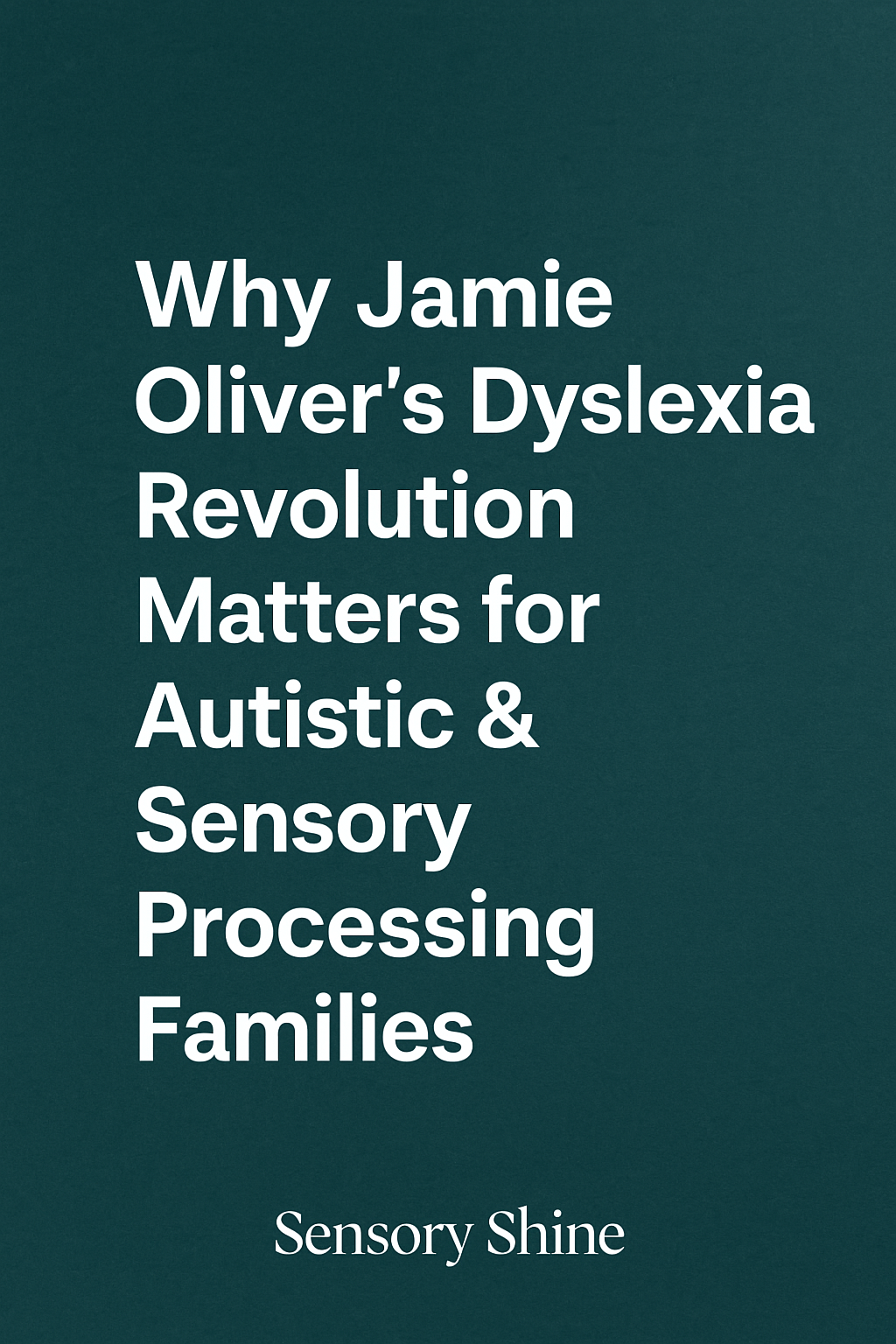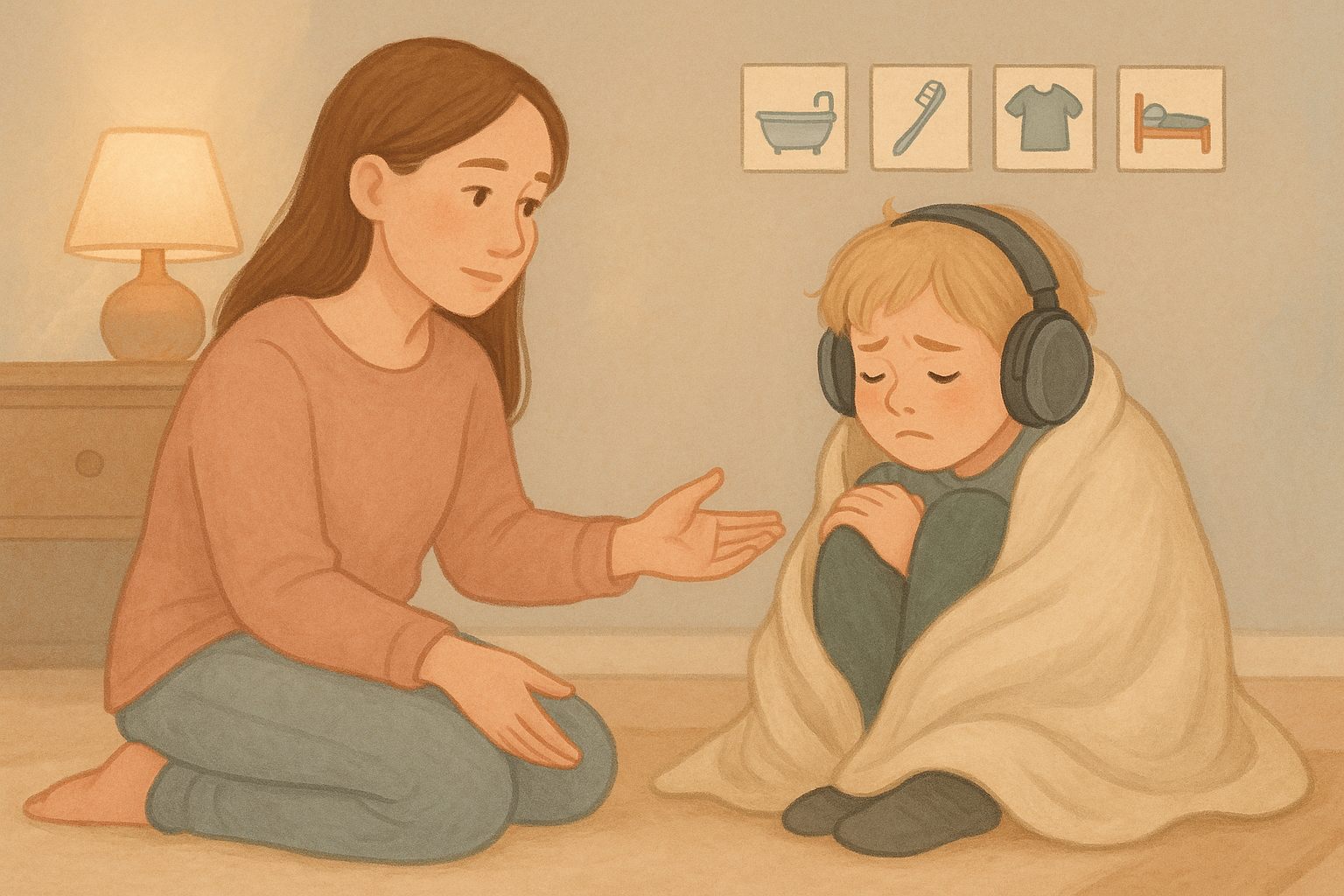Understanding Early Signs of Autism 🧠
Many parents first search the internet wondering: "What are the early signs of autism in my child?"
Common early signs include:
Limited eye contact
Delayed speech or lack of babbling
Repetitive behaviours (like hand flapping or lining up toys)
If you notice these signs, it's important to speak with your healthcare professional. Early intervention can make a real difference. You can also read our upcoming Early Signs of Autism Checklist for more support.
Supporting Sensory Sensitivities and Special Interests 🌈
Many autistic children experience sensory sensitivities, such as finding certain sounds, lights, or textures overwhelming.
Sensory Support Tips:
Create a calm sensory-friendly space at home.
Offer tools like noise-reducing headphones or weighted blankets.
Encourage your child's special interests - these can be powerful sources of comfort and learning.
👉 Explore our sensory care products designed to support calm and confidence.
School Transitions: Easing the Anxiety 🎒
A frequent concern parents search for is: "How do I help my autistic child settle into school?"
Transition Tips:
Arrange school visits before starting to help your child feel familiar.
Use visual schedules to prepare for the school day.
Communicate with teachers about specific needs or sensory breaks.
We've put together a helpful Parent's School Transition Toolkit you can download soon.
Managing Co-Occurring Challenges
It's common for autistic children to experience additional challenges like anxiety, ADHD, or sleep difficulties.
Helpful Approaches:
Establish a calm bedtime routine with low lighting and predictable steps.
Support emotional regulation through visual aids or sensory play.
Seek therapies that suit your child, such as speech therapy or parent-led social support.
You can explore our sensory toothbrushes here to help with tricky hygiene routines that many children with sensory differences struggle with.
Online Safety for Autistic Children 📱
Parents are rightly concerned about "How can I keep my autistic child safe online?"
Many autistic children can find it difficult to detect online risks, such as scams or cyberbullying.
Online Safety Tips:
Set clear online rules and time limits.
Use parental controls and privacy settings.
Encourage open conversations about online experiences.
For more guidance, trusted organisations like the National Autistic Society offer practical advice for families.
Where to Find Support 💙
Parenting an autistic child can sometimes feel isolating, but you don't have to navigate it alone.
Recommended Resources:
National Autistic Society - practical advice and local support.
Local parent groups - a great way to share experiences and tips.
Your GP or health visitor - first step for accessing professional help.
You can also subscribe to our Sensory Shine Newsletter for monthly tips and product support here.
Final Thoughts 🌟
Parenting an autistic child is a journey full of learning, love, and growth. By creating a supportive environment and connecting with the right tools and community, you're giving your child the confidence to thrive.
We're here to support you every step of the way.
✅ FAQ Section:
Supporting Parents of Autistic Children
Frequently Asked Questions (FAQs)
Q: What are the early signs of autism in children?
A: Early signs may include limited eye contact, delayed speech, repetitive behaviours like hand flapping, and not responding to their name. Early intervention is key-if you notice these signs, contact your GP or health visitor.
Q: How can I support my child's sensory needs at home?
A: You can create calm, sensory-friendly spaces with soft lighting, use noise-reducing headphones, and offer sensory support tools like fidget items or weighted blankets. Find what makes your child feel safe and regulated.
Q: How do I help my autistic child prepare for school?
A: Arrange school visits, use visual schedules, and talk to teachers about additional support like sensory breaks or quiet areas. Preparation helps reduce anxiety during school transitions.
Q: How can I keep my autistic child safe online?
A: Set clear rules about online use, enable parental controls, and regularly talk about online dangers like scams or cyberbullying. Encourage your child to tell you if something online feels uncomfortable or unsafe.
Q: Where can I find trusted autism support in the UK?
A: The National Autistic Society is a leading resource offering practical advice, community support, and local events. You can also connect with local parent groups for shared experiences.




Leave a comment
This site is protected by hCaptcha and the hCaptcha Privacy Policy and Terms of Service apply.